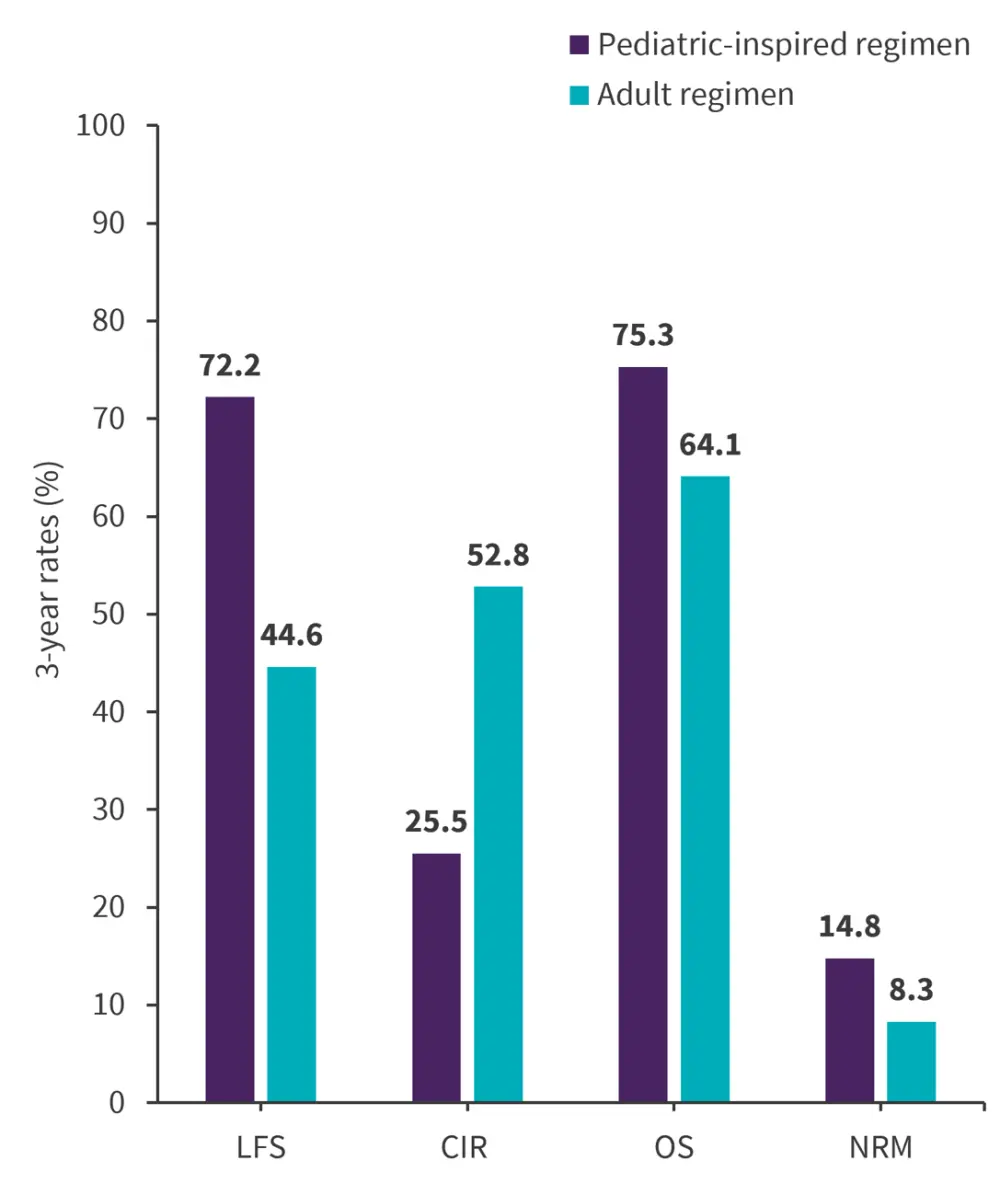All content on this site is intended for healthcare professionals only. By acknowledging this message and accessing the information on this website you are confirming that you are a Healthcare Professional. If you are a patient or carer, please visit Know ALL.
The all Hub website uses a third-party service provided by Google that dynamically translates web content. Translations are machine generated, so may not be an exact or complete translation, and the all Hub cannot guarantee the accuracy of translated content. The all and its employees will not be liable for any direct, indirect, or consequential damages (even if foreseeable) resulting from use of the Google Translate feature. For further support with Google Translate, visit Google Translate Help.
The ALL Hub is an independent medical education platform, sponsored by Amgen, Autolus, Jazz Pharmaceuticals, and Pfizer and supported through an educational grant from the Hippocrate Conference Institute, an association of the Servier Group. Funders are allowed no direct influence on our content. The levels of sponsorship listed are reflective of the amount of funding given. View funders.
Now you can support HCPs in making informed decisions for their patients
Your contribution helps us continuously deliver expertly curated content to HCPs worldwide. You will also have the opportunity to make a content suggestion for consideration and receive updates on the impact contributions are making to our content.
Find out more
Create an account and access these new features:
Bookmark content to read later
Select your specific areas of interest
View ALL content recommended for you
PASS ALL study: Pediatric-inspired vs adult regimens in AYA patients with high-risk Ph− B-ALL
Although considerable progress has been made in the treatment and outcomes of childhood acute lymphoblastic leukemia (ALL), outcomes for adult patients with ALL remain poor. This may be attributed to the differences in chemotherapy protocols. Pediatric-inspired protocols have improved outcomes for adolescents and young adults; however, the effect of this regimen in patients undergoing allogeneic hematopoietic stem cell transplantation (allo-HSCT) is unknown.1
Here, we summarize an observational, multicenter cohort PASS ALL study published by Wang et al.1 in British Journal of Haematology investigating the effect of pediatric-inspired vs adult chemotherapy regimens on survival outcomes in adult patients with high-risk Philadelphia chromosome-negative (Ph−) B-cell ALL (B-ALL).
Study design1
- This study included patients aged 14–60 years with high-risk Ph− B-ALL and were eligible for allo-HSCT.
- Treatment included either PDT-ALL-2016 (pediatric-inspired) or CALLG-2008 protocol (adult regimen).
- The primary endpoint was leukemia-free survival (LFS).
- Secondary endpoints included overall survival, non-relapse mortality, and side effects.
Key findings1
- A total of 143 patients were included in the study, 77 of which received a pediatric-inspired regimen and 66 received an adult regimen.
- Overall, 128 patients underwent allo-HSCT.
- Early deaths were reported in 2% and 4.5% of patients in the pediatric-inspired and adult regimen cohort, respectively.
- The complete remission rate was 92.4% vs 86.4% in the pediatric-inspired and adult regimen cohort, respectively.
- Negative measurable residual disease status by flow cytometry was achieved by 79.7% of patients in the pediatric-inspired cohort vs 77.9% in the adult regimen cohort.
- There was a significant difference in the LFS and cumulative incidence of relapse between the two cohorts
- 3-year LFS (p = 0.001), overall survival (p = 0.074), cumulative incidence of relapse (p = 0.000), and non-relapse mortality (p = 0.347) rates are reported in Figure 1.
Multivariate analyses showed that pediatric-inspired regimen is a predictive factor for LFS with a hazard ratio of 3.073 (95% Cl [confidence interval], 1.600–5.902; p = 0.001) as well as first complete remission disease status with a hazard ratio of 1.543 (95% Cl, 1.192–1.996; p = 0.001).
Figure 1. Survival outcomes in pediatric-inspired vs adult regimens cohort*

CIR, cumulative incidence of relapse; LFS, leukemia-free survival; OS, overall survival; NRM, non-relapse mortality.
*Adapted from Wang, et al.1
| Key learnings |
|
Pediatric-inspired chemotherapy regimens achieved durable responses and improved outcomes in adult patients with high-risk Ph− B-ALL undergoing allo-HSCT compared with conventional adult protocols. |
References
Please indicate your level of agreement with the following statements:
The content was clear and easy to understand
The content addressed the learning objectives
The content was relevant to my practice
I will change my clinical practice as a result of this content

